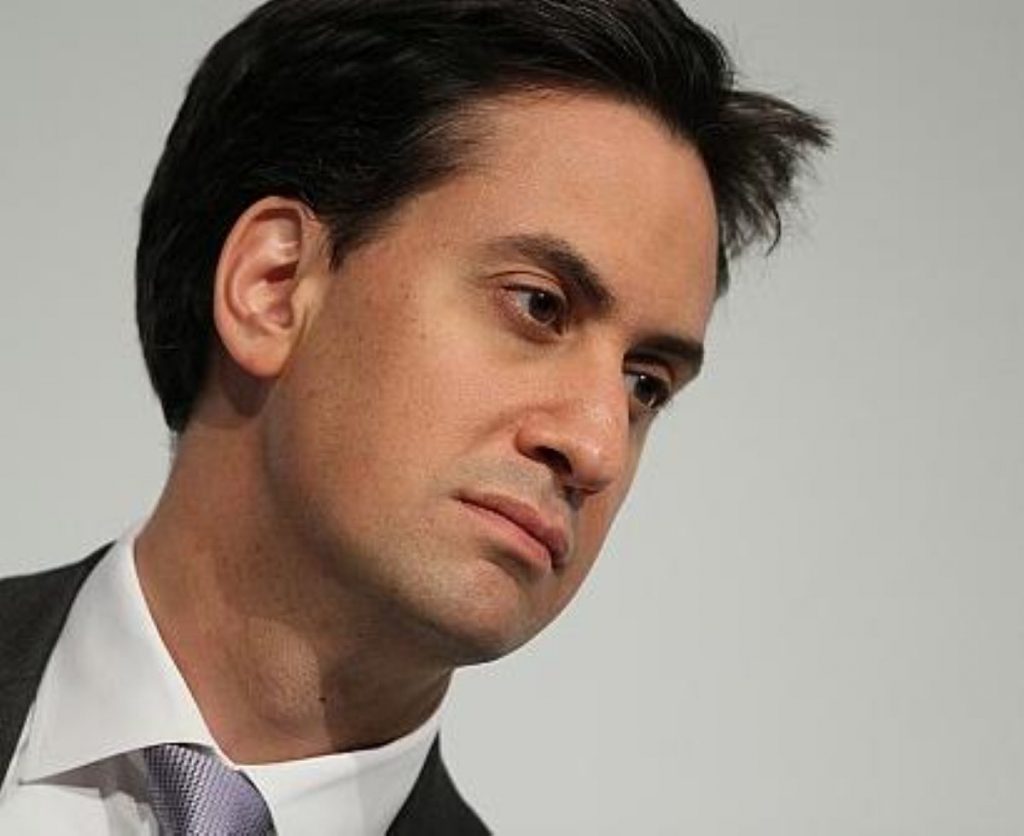Here’s how Ed Miliband gets out of this hole
It probably seems like a minor miracle that anyone around Ed Miliband is still keeping their heads. But right now, the Labour leader's team have a plan for him to get out of trouble.
Things are, undoubtedly, rather shaky. This week's seen a scathing article from the New Statesman's editor, Jason Foley. Labour MPs from the north-west have asked awkward questions. And at least four of them have called on Miliband to step down.
Awkward times for the Labour leader. But there is a way out of all this. A way, somehow, that despite everything Miliband could end up standing on the steps of Downing Street as the victor of next year's general election.
Such a possibility seems ridiculous to most in Westminster. They scoff at the idea because Miliband is a geeky man who appears unattractive and even unelectable to many. Unlike David Cameron, they say Miliband is not natural prime minister material.


Clement Attlee was not natural prime minister material, either, and it's fair to say he's left his mark on Britain. Miliband could do the same. He wants to do the same. And he has enough of a strategic view of the game being played out right now to know that even the current jitters from Labour can be laid to rest by the new year.
Focusing on the big picture has been essential for Miliband. People often forget he is the first ever leader of the opposition who has had to plan for five guaranteed years out of power. That is a long time to prepare and plan for an election campaign. Unless the coalition collapsed – and it has never honestly looked like doing so – the prospect of building up to a contest five years away posed a tough challenge.
That Miliband has struggled with it is not, therefore, all that surprising. It makes direct comparisons with previous unsuccessful figures – Michael Foot, Neil Kinnock, William Hague, Michael Howard – a little unfair. Actually, Miliband has orchestrated the strategic elements of his job brilliantly. The national policy forum process has been a huge success; Labour now has far more clearly thought-out policies than the Conservatives did at this stage before 2010. Miliband's weakness comes at the tactical level.
This week's PMQs performance sums it up. He was right on paper, but lost on points. Instead of delivering a knock-out blow he got a low punch or two from his adversary and ended up being mocked. Problems with bacon sandwiches, giving money to beggars and even pesky newspaper editorials stem from this basic failure to win the day-to-day fights.
Miliband's great hope is that he only needs to win one big battle – the most important of them all. So he will deeply regret the fact his biggest opportunity yet to demonstrate that he can do so was a disaster. This autumn's party conference speech was an acknowledged catastrophe. It has reportedly shot his confidence. He needs to find it, and find it quickly.
Having a new team around him may help. The appointment of Jon Trickett, an out-and-out lefty, to the post of senior adviser is a good start. So is that of Lucy Powell, widely regarded as a real talent, who is now a shadow Cabinet Office minister and is expected to play a key role. It will be their task to provide Miliband with what he has been lacking so far: a way of creating that elusive, election-winning formula which Miliband so desperately needs.
They had better get to it quick. One source close to Miliband admitted backbenchers' frustrations were "understandable". Morale within the shadow Cabinet itself seems distinctly ropy. And there are unpleasant noises coming from the broader frontbench teams too. As one shadow minister put it after Miliband attacked Cameron on immigration last month: "It's like two bald men fighting over a comb."
Weeks, rather than months, is the timeframe for Powell and Trickett. But despite the ticking clock, and the added pressure coming from this week's events, they should not lose their heads. All they need to do is get Miliband through this awkward transition period between the formation of policy and the creation of a unifying message. He really ought to have not had such a transition period at all, but that can't be helped. There is still time for him to achieve what many now believe is laughable.
Cameron might seem like the more obvious candidate for No 10 in the next parliament, but Miliband is playing a long game which ends with a different result. He is being forced to contend with powerful destabilising forces which risk everything – the rise of Ukip, the collapsing Lib Dem vote, and now the SNP surge in Scotland. All these combine to make this the most unstable period of British politics since the SDP's arrival in the early 1980s. This turbulence could end up helping Miliband.
You wouldn't think it from reading the headlines today – but who gets the last laugh after May 7th 2015 remains an open question.

